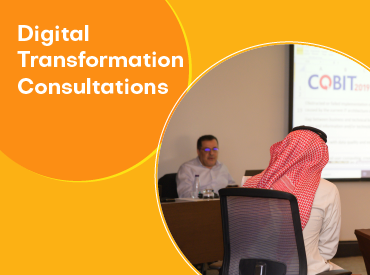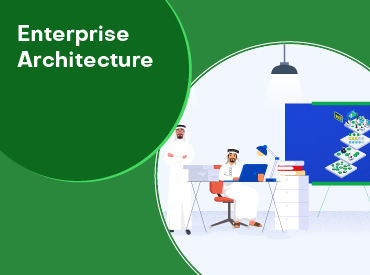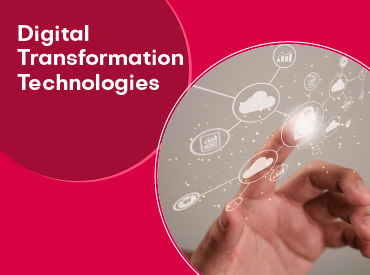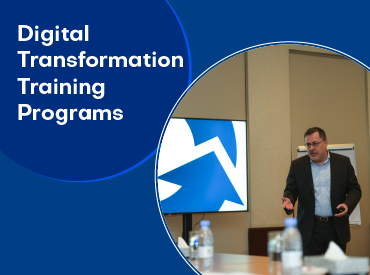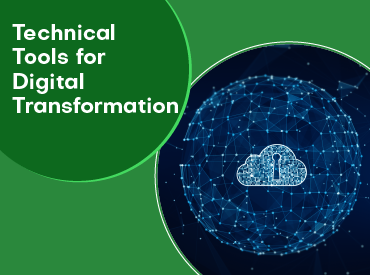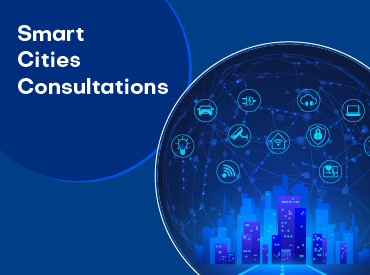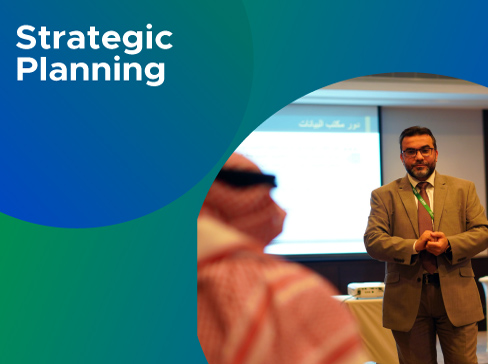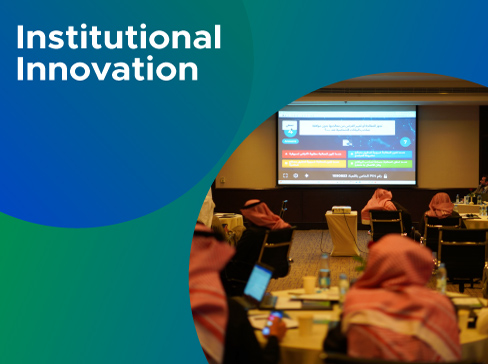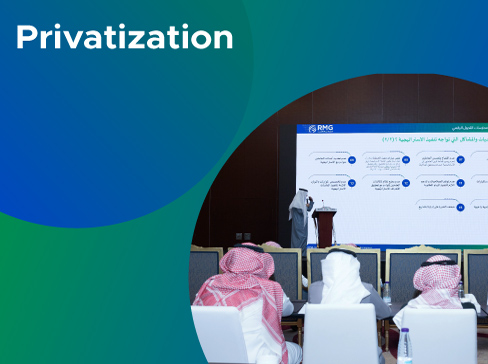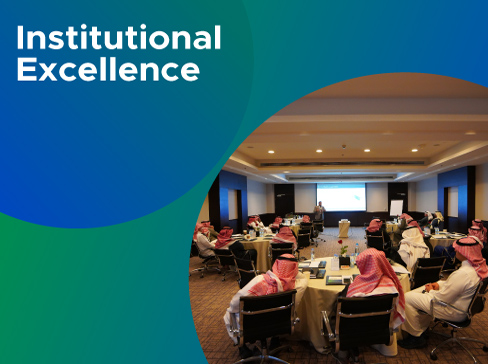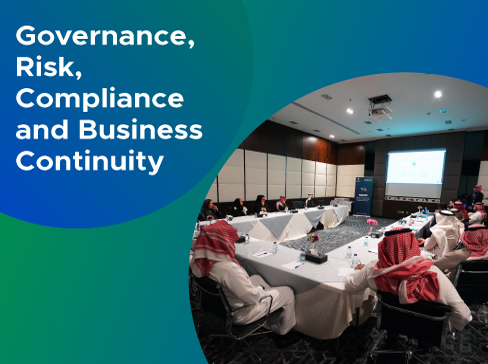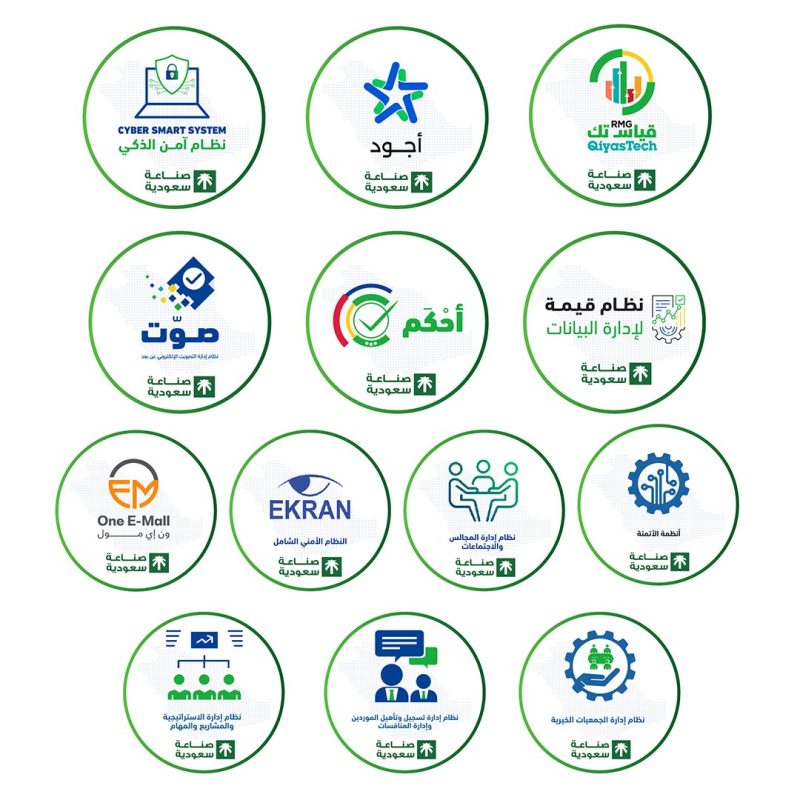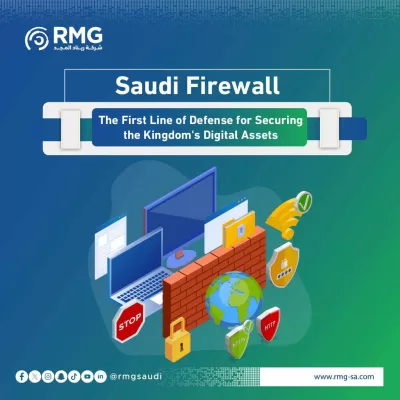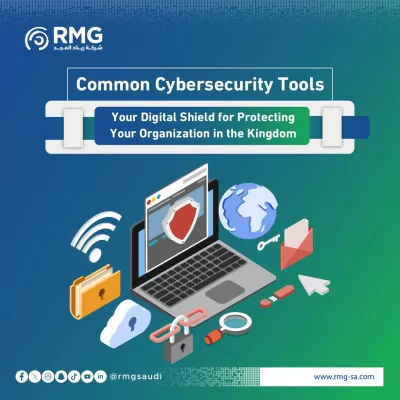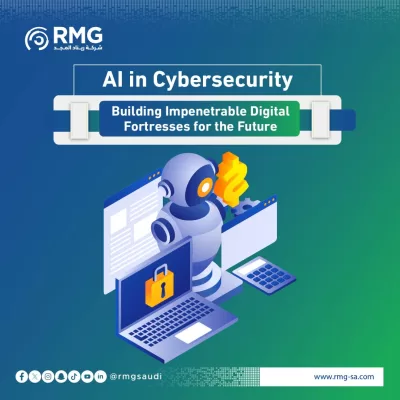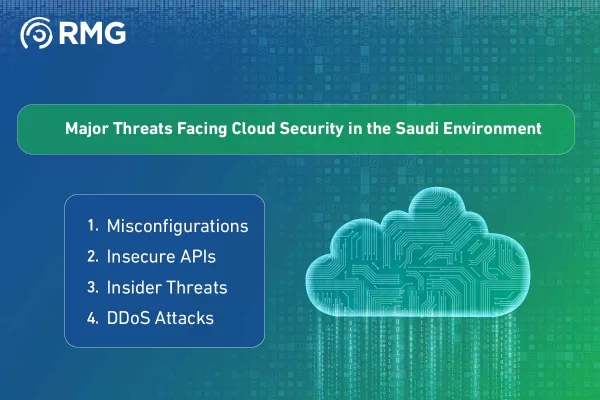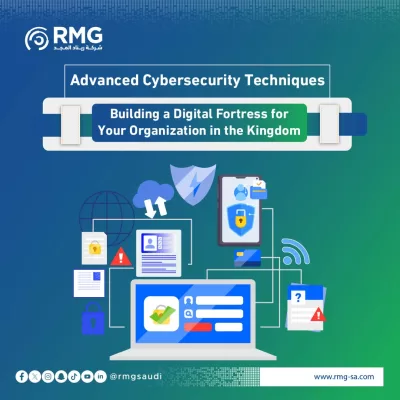Blog Body
Discover how the concept of sustainability can reshape your business. Learn its principles, strategies, and importance for achieving growth. Let Renad Al Majd (RMG) guide you towards sustainable success that aligns with Saudi Vision 2030.
In a world of accelerating change and increasing environmental and social challenges, responsible business is no longer just a buzzword or a secondary option; it has become the cornerstone of long-term success and a fundamental pillar for the growth of both companies and communities. It’s the new mindset that differentiates between companies looking to survive for a day and those planning for leadership for generations to come.
Economic growth alone is no longer the sole measure of success. Today, true success is measured by the ability to balance financial profits, responsibility towards the planet, and well-being for society. This is the essence of sustainability: a comprehensive strategy that ensures prosperity today without compromising the ability of future generations to meet their needs. In this comprehensive guide, we will delve into the depths of this concept and explore how to transform it from a mere idea into a tangible reality that enhances competitiveness and opens new horizons for innovation and growth.
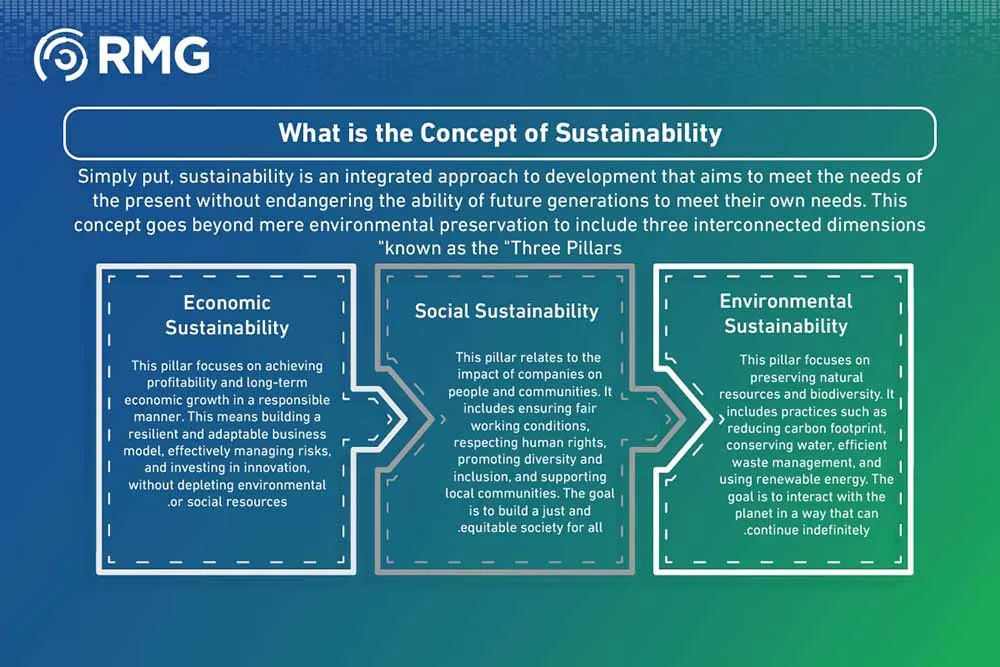
What is the Concept of Sustainability?
Simply put, sustainability is an integrated approach to development that aims to meet the needs of the present without endangering the ability of future generations to meet their own needs. This concept goes beyond mere environmental preservation to include three interconnected dimensions known as the “Three Pillars”:
- Environmental Sustainability: This pillar focuses on preserving natural resources and biodiversity. It includes practices such as reducing carbon footprint, conserving water, efficient waste management, and using renewable energy. The goal is to interact with the planet in a way that can continue indefinitely.
- Social Sustainability: This pillar relates to the impact of companies on people and communities. It includes ensuring fair working conditions, respecting human rights, promoting diversity and inclusion, and supporting local communities. The goal is to build a just and equitable society for all.
- Economic Sustainability: This pillar focuses on achieving profitability and long-term economic growth in a responsible manner. This means building a resilient and adaptable business model, effectively managing risks, and investing in innovation, without depleting environmental or social resources.
The balance between these three pillars is what creates true, balanced development. A company cannot succeed environmentally if it is unprofitable, nor can it achieve economic prosperity if it exploits its employees or destroys the environment.
A Journey Through Time: The Genesis and Evolution of the Concept of Sustainability
This concept did not emerge suddenly; rather, it is the product of a long intellectual evolution that began with increasing awareness of the negative impacts of the Industrial Revolution. Its origins can be traced to several key milestones:
- 19th and Early 20th Century: The emergence of nature conservation movements.
- 1960s and 1970s: Increasing public concern about pollution, leading to the enactment of stricter environmental laws.
- 1987 (Turning Point): The UN Brundtland Commission issued its report “Our Common Future,” which provided the most famous definition of sustainable development.
- 21st Century: The concept became more comprehensive with the emergence of frameworks such as the UN Sustainable Development Goals (SDGs) and Environmental, Social, and Governance (ESG) criteria, which transformed it from a mere idea into a global standard.
The Fundamental Difference Between Sustainable and Unsustainable Activity: A Comparative Look
The fundamental difference lies in mindset and time horizon. Key distinctions can be summarized as follows:
| Aspect | Unsustainable Activity (Traditional) | Sustainable Activity (Modern) |
| Primary Goal | Maximizing short-term profit. | Creating long-term value for all stakeholders. |
| Time Horizon | Short-term, focusing on quarterly and annual results. | Long-term, planning for future generations. |
| Resource Use | Linear approach (extract – manufacture – use – dispose). | Circular approach (reduce – reuse – recycle). |
| Relationship with Parties | Focus on shareholders. | Focus on all stakeholders. |
| Risk Management | Focuses only on financial and operational risks. | Integrates environmental, social, and governance risks. |
| Innovation | Focuses on product improvement or cost reduction. | Focuses on innovation in business models and processes. |
Most Famous Sustainability Concepts Shaping Our World
This approach has evolved to include several concepts and frameworks that help organizations apply it effectively. Among the most famous today are:
- Circular Economy: A model that aims to eliminate waste and continuously use resources.
- Environmental, Social, and Governance (ESG): A set of criteria used by investors to evaluate a company’s performance in these three areas.
- Corporate Social Responsibility (CSR): A company’s commitment to operate ethically and contribute to economic development while improving the quality of life for its community.
Principles of Sustainability: The Foundations for Building a Better Future
To achieve truly balanced development, organizations must adopt a set of fundamental principles in their culture and operations. The key principles of this approach include:
- Long-term Thinking: Making decisions that ensure the continuity of business and the health of the planet and society.
- Transparency and Accountability: Transparently disclosing and taking responsibility for environmental and social impact.
- Stakeholder Engagement: Communicating and collaborating with employees, customers, suppliers, and the community.
- Resource Efficiency: Using natural resources (energy, water, raw materials) with maximum efficiency.
- Continuous Innovation: Constantly seeking new and better ways to deliver products and services.
Sustainability in Companies and Businesses: From Theory to Practice
Applying these principles in companies is no longer a luxury but a strategic necessity. Companies that adopt this mindset gain tremendous competitive advantages.
Examples of Sustainability in Businesses:
- A Clothing Company: Uses organic cotton and recycled materials and ensures fair wages.
- A Technology Company: Powers its data centers with renewable energy and designs repairable devices.
- A Food Company: Relies on local sourcing, reduces food waste, and uses eco-friendly packaging.
Activities that Promote Sustainability:
Companies, regardless of their size, can adopt practical activities, such as:
- In the Office: Installing LED lighting, encouraging less printing, providing waste sorting bins.
- In Operations: Improving energy and water consumption efficiency, optimizing transportation routes.
- In the Supply Chain: Choosing suppliers who adhere to environmental and social standards.
Why is the Importance of Sustainability the Cornerstone of Your Success?
The importance of this strategic direction is multifaceted and goes beyond merely “doing the right thing.” It’s a smart investment that yields tangible returns:
- Enhanced Brand Reputation: Customers prefer to deal with companies that share their values.
- Reduced Costs: Efficient resource use means lower bills and operational costs.
- Attracting Top Talent: Employees today seek workplaces with a higher purpose.
- Innovation and Opening New Markets: Seeking innovative and responsible solutions opens new doors.
- Risk Management: Preparing for changes in environmental regulations gives the company greater flexibility.
- Alignment with Saudi Vision 2030: The Vision heavily emphasizes sustainable development, making companies that adopt this mindset an ideal partner in achieving national goals.
Challenges Businesses Face When Transitioning to Sustainability
Despite the numerous benefits, businesses face challenges, including:
- Initial Investment Cost: The transition may require upfront investments in new technologies.
- Lack of Expertise and Knowledge: Companies may lack the necessary knowledge to develop an effective strategy.
- Resistance to Change: Leaders may face resistance from employees accustomed to traditional methods.
- Difficulty in Measuring ROI: It can be challenging to quantify some benefits of this approach, such as improved reputation, with precise figures.
Sustainability Strategy for Business Management: A Roadmap to Excellence
To overcome these challenges, companies need a clear strategy for managing their businesses responsibly. This is not a document to be filed away, but a living roadmap that integrates environmental and social principles into the core of every decision and process.
How to Create a More Sustainable Business Strategy Step-by-Step:
- Assessment and Analysis: Start by evaluating your current situation. What is your environmental and social impact?
- Defining Vision and Goals: Set a clear vision for what responsible business means for your company and define smart goals.
- Stakeholder Engagement: Talk to your employees, customers, and suppliers.
- Implementation and Initiatives: Develop a detailed action plan with responsibilities and resources.
- Measurement and Reporting: Track your progress and issue transparent reports on environmental and social performance.
- Continuous Improvement: Sustainability is a journey, not a destination. Regularly review your strategy.
Renad Al Majd (RMG): Your Strategic Partner on Your Journey Towards Vision 2030
The challenges companies face when adopting responsible practices are real, and transforming an idea into an executable strategy requires expertise and a reliable partner. This is where Renad Al Majd (RMG) comes in, where we translate your aspirations for a greener future into tangible business success.
We don’t offer ready-made solutions; instead, we work as a strategic partner to understand your goals, leveraging our expertise to empower you on your responsible transformation journey through our integrated services:
- Feasibility Studies and Impact Assessment: We prepare comprehensive studies that assess the economic, environmental, and social feasibility of any sustainable project, ensuring your decisions are based on accurate data.
- Management Consulting and Strategy Development: We help you build a customized responsible growth strategy that aligns with your vision and with the objectives of Vision 2030.
- Business Development and Innovation: We help you identify new market opportunities offered by this trend and develop innovative and responsible business models.
- Digital Transformation to Support This Trend: We harness the power of technology to help you monitor your environmental performance, improve resource efficiency, and enhance transparency.
With Renad Al Majd, transformation is not just an annual report; it becomes an integral part of your corporate DNA, a driver of growth, and a testament to your commitment to building a better future.
Are You Ready to Lead the Future? Let’s Collaborate for Sustainable Success
The transition to sustainability is not just a responsibility; it is the greatest business opportunity of our era. It’s an opportunity to innovate, excel, and leave a positive legacy. Companies that recognize this today are the ones that will lead tomorrow’s markets.
At Renad Al Majd (RMG), we don’t just offer theories; we provide you with partnership and practical support to turn your vision into reality. We invite you to contact us today to start a dialogue about how to make responsible business your next success story.
Let’s collaborate to build businesses that not only thrive but also endure and inspire.


